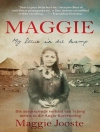In ‘My Life, ‘ Anton Chekhov explores the intricacies of the human experience through the lens of a character grappling with the burdens of his own existence. The novella encapsulates Chekhov’s hallmark style, characterized by its subtle irony and rich psychological insight. Set against the backdrop of 19th-century Russian society, the narrative unfolds with a poignant realism, reflecting the author’s critique of social conventions and the existential dilemmas faced by individuals caught between aspiration and reality. Chekhov’s exquisite prose invites the reader into a deeply personal journey, where the mundane and the profound intertwine seamlessly. Anton Chekhov, a towering figure in Russian literature, is known for transforming the short story and drama genres. His experiences as a physician and observer of human nature deeply informed his writing, enabling him to capture the nuances of life in a rapidly changing Russia. ‘My Life’ reflects Chekhov’s own struggles with identity, belonging, and the societal pressures that shaped his worldview. This autobiographical tone resonates with authenticity, revealing the emotional and intellectual conflicts that plagued Chekhov throughout his life. For readers intrigued by the complexities of human existence and the quest for meaning, ‘My Life’ presents an essential exploration of self and society. It is a compelling study that not only enriches our understanding of Chekhov as an author but also offers timeless reflections on the human condition, making it a must-read for anyone interested in literature’s profound capacity to illuminate our lives.
Об авторе
Anton Pavlovich Chekhov (1860–1904) stands among the most significant figures in Russian literature. A master of short fiction, his works exhibit a profound humanism, keen observation of character, and attunement to the complexities of life. Chekhov’s medical background, graduating from the Moscow University medical school, informed his literature with a distinctive sensitivity to both the physical and psychological states of his characters. His narrative style, often eschewing the dramatic for the understate, invites readers into the subtleties of everyday existence, rendering the mundane as a tapestry of emotional depth. In ‘My Life’ (1896), Chekhov’s novella presents a penetrating exploration of a man’s quest for autonomy against societal expectations, encapsulating his ideals of personal freedom and the forces that encroach upon it. Chekhov’s contribution extends beyond storytelling; his plays, notably ‘The Cherry Orchard’, ‘The Seagull’, ‘Uncle Vanya’, and ‘Three Sisters’, revolutionized modern theatre through their use of natural dialogue and the subtext driving the characters’ interactions. Chekhov’s death at the early age of 44 left a legacy that influenced the development of the modern short story and drama, shaping the path for realist writing to follow. His works continue to be revered for their stark yet compassionate portrayal of human fragility and resilience.












